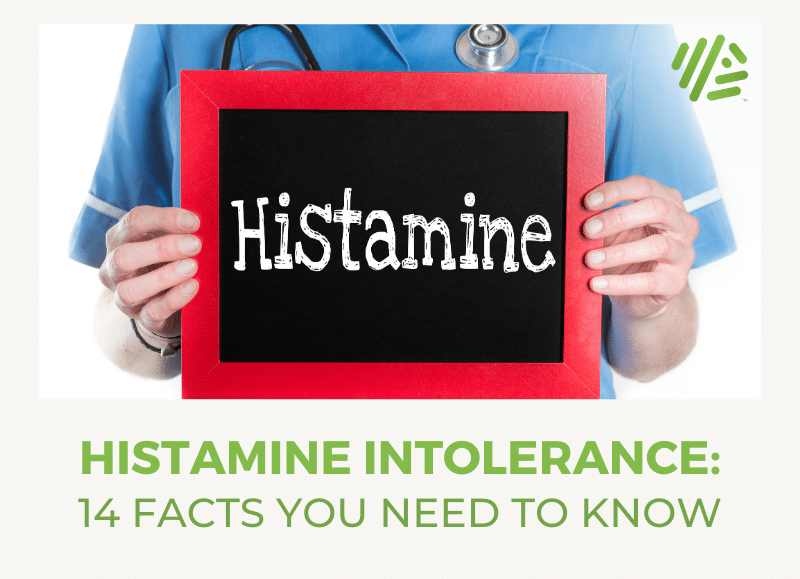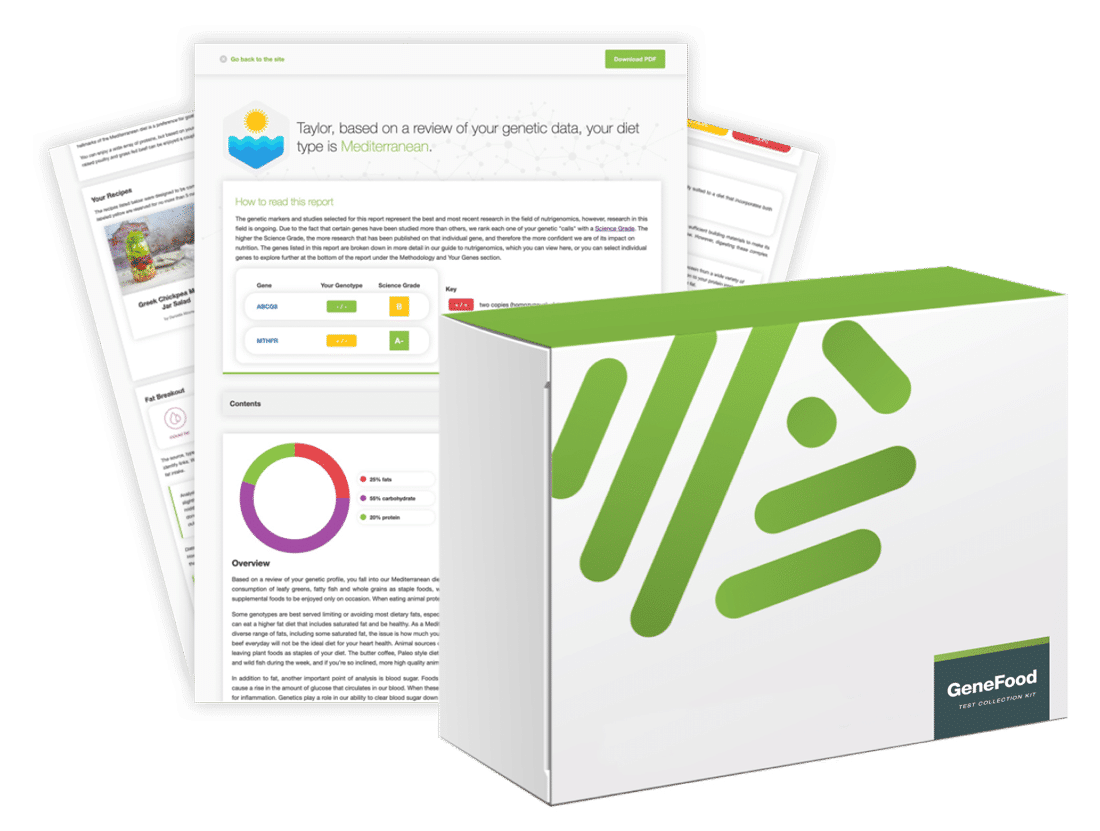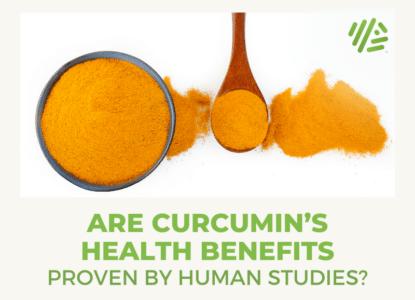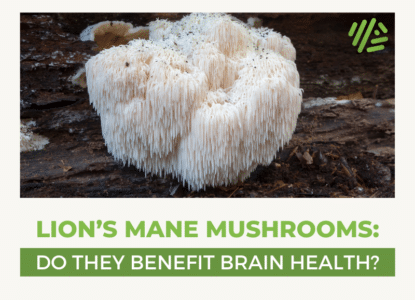Histamine Intolerance: 14 Facts You Need to Know
Genes Mentioned

Contents
- #1. Histamine is a neurotransmitter
- #2. Histamine is released from mast cells
- #3. Excess histamine causes food poisoning
- #4. One percent of people suffer from histamine intolerance
- #5. Seasonal allergies can contribute to histamine intolerance
- #6. Histamine intolerance has a genetic component
- #7. Histamine intolerance can cause gut issues
- #8. Our microbiome can produce histamine
- #9. NSAIDs may aggravate histamine intolerance
- #10. Alcohol makes histamine intolerance worse
- #11. All food has histamine
- #12. Freshness of food is key
- #13. Elimination diets can be easier than you think
- #14. Stress can histamine intolerance worse
- Key Takeaways
As evidenced by this excellent paper in the American Journal of Clinical Nutrition, histamine intolerance is a condition that is starting to gain more awareness in the medical community.
It’s a problem that can seriously degrade anyone’s quality of life. Based on my experience with histamine issues, and after our research team spent over 100 hours combing through all the relevant peer reviewed studies on histamine and histamine metabolism, there are 14 things we’d like you to know about this condition.
It is our team’s hope that the information in this post will help anyone battling through this difficult time, but before we get started, some words of optimism.
First, it is possible to get a handle on histamine intolerance, it may not be easy, but with a personalized approach it can be conquered.
Next, and this is crucially important – do not fear the fridge! Histamine intolerance is bigger than food. Ultra restrictive diets with 100 foods to avoid aren’t the solution long term. In order to be healthy, you must eat. This doesn’t mean that low histamine diets can’t help, but food isn’t the whole story, there are multiple factors that contribute to histamine overload.
With those preliminary notes out of the way, let’s get into the list.

Get Started With Personalized Nutrition
Gene Food uses a proprietary algorithm to divide people into one of twenty diet types based on genetics. We score for cholesterol and sterol hyperabsorption, MTHFR status, histamine clearance, carbohydrate tolerance, and more. Where do you fit?
#1. Histamine is a neurotransmitter
Yes, that is correct, no one is actually “histamine intolerant,” we all need histamine, it’s an essential neurotransmitter. 1 However, as with anything, too much of a good thing can cause problems. Each of us has a histamine bucket. As our bodies make histamine, and as we ingest it in food, it is cleared by an enzyme known as diamine oxidase. When more histamine accumulates than our diamine oxidase levels can handle, symptoms begin which leads to the condition known as “histamine intolerance.”
#2. Histamine is released from mast cells
We can eat histamine, our brains use histamine, and the immune system also releases histamine from a special class of cells, called mast cells. Think of mast cells as the military sentinels of the immune system.
When these cells see a foreign invader, like a virus, or allergen, they react by “degranulating” and releasing cytokines that can seek out and kill the invader. Histamine is released from mast cells as part of this process. It acts as a vasodilator to facilitate blood flow to injury sites in the body.
The key thing to understand when experiencing histamine intolerance is that mast cells can become chronically irritated, causing the near constant release of histamine. We need mast cells for a properly functioning immune system, but they also need rest. When bacteria, an environmental toxin, or an allergy continuously trigger mast cells, the resulting cytokine activity can start to cause tissue damage. Increased levels of tissue damage leads to chronic inflammation.
Based on the commonly reported symptoms of histamine intolerance, it probably won’t come as a big surprise that mast cells are found in greatest numbers at the site of mucous membranes: skin, nose, throat, gut, lungs, and bladder.
In a very real sense, the quest to get over histamine intolerance is the quest to discover what is irritating the immune system and to remove it from the equation. Histamine intolerance can also be misdiagnosed as mast cell activation disorder.
#3. Excess histamine causes food poisoning
You may have heard the expression – “the dose makes the poison.” If you have one bourbon, you have a great time. If you have the whole bottle, you end up in the hospital. The same principle applies to dietary histamine. At a high enough dose, every one of us is histamine intolerant, as large doses of histamine cause food poisoning.
#4. One percent of people suffer from histamine intolerance
The American Journal of Clinical Nutrition estimates that 1% of the population suffers from histamine intolerance and 80% of those patients are middle-aged. Because the symptoms of histamine intolerance overlap with many other conditions, struggles with histamine often go undiagnosed. One possible way to catch a histamine intolerance is through inspection of a bug bite. Weird? Maybe, but when a “normal” bug bite swells out of control, it could be a sign that histamine levels aren’t where they should be in the body. If this is a normal occurance for someone, visiting a primary care physician might be a good next step to explore.
#5. Seasonal allergies can contribute to histamine intolerance
This factor is not discussed as much as it should be. Food gets all the attention, but histamine intolerance goes well beyond food. Allergy to the environment triggers the immune system to produce histamine, which starts to fill the histamine bucket.
Consider this quote from the American Journal of Clinical Nutrition:
Underlying conditions for increased availability [of histamine] may be an endogenous histamine overproduction caused by allergies…
The production of histamine by air-borne allergens can unknowingly take up a large portion of the histamine bucket, leaving reduced wiggle room with food. This means that location alone can be a cause of histamine intolerance.
To this point, Dr. Janice Joneja wrote an excellent blog on the subject of histamine that everyone should read. This quote, in particular, stands out:
A person with histamine intolerance will typically experience a constant fluctuation in the signs and symptoms of histamine excess in response to changing conditions. For example, when a person is experiencing allergy to air-borne allergens such as seasonal pollens, the histamine released in the allergic response alone might put them into the symptom range. In such a case, avoiding histamine-associated foods will no longer relieve their symptoms because their total level of histamine will remain above their limit of tolerance. This explains the observation that during their “pollen allergy season” many people find themselves reacting to foods (usually histamine-rich foods) that they could normally eat with impunity.
#6. Histamine intolerance has a genetic component
An enzyme called diamine oxidase is responsible for cleaning up histamine in the gut. 2 The AOC1 genes are coded to make this important enzyme, but not everyone is born with the same enzyme activity, which makes some of us genetically more susceptible for developing histamine intolerance.
So as not to confuse the DAO enzyme with the DAO gene (which many online forums do) take a look at Aaron’s post: You say DAO, I say DAAO.
DAO breaks down “free histamine,” like the histamine found in the gut, while HNMT, another histamine gene, processes histamine in the cell.
Variants in the AOC1 genes have been associated with reduced DAO activity. For example, this Italian study found that 10 out of 14 patients with histamine intolerance had very low levels of serum DAO.
#7. Histamine intolerance can cause gut issues
Mast cells reside in large numbers in the gut, so a chronic allergic response paired with an inability to clear the histamine (due to reduced DAO) will irritate the gut over time.
Aaron’s research indicates that histamine issues often coincide with gut problems. Histamine, when chronically elevated in the gut, can cause an increase in zonulin, which is a protein shown to break apart the epithelial wall; the lining that keeps the contents of the gut from entering the bloodstream.
For more on gut health and histamine, take a look at the podcast episode we did on the subject.
Decreased DAO levels are linked to a number of inflammatory bowel conditions, including Crohn’s disease and ulcerative colitis. This small study, which evaluated tissue samples from the intestine of 20 patients struggling with Crohn’s, found that all of the patients had very low levels of DAO.
To make matters worse, many fermented foods, marketed for “gut repair,” are very high in histamine. Collagen is a bad one.
#8. Our microbiome can produce histamine
Changes to the flora in our guts may be a contributing factor to histamine intolerance, which is why some of us develop histamine problems after a severe infection and multiple rounds of antibiotics.
Small scale studies have shown that the microbiomes of those with histamine intolerance are altered in noticeable ways. Again, the studies aren’t enormous, but patients with histamine intolerance have been found to have elevated levels of Proteobacteria above what is considered normal. Proteobacteria are a type of microbe found commonly in disease states.
Further, healthy microbes in the gut, like many Bifidobacterium species can degrade histamine, while other unhealthy microbes, such as Escherichia, can produce histamine. 3
#9. NSAIDs may aggravate histamine intolerance
Certain variants in the AOC1 genes are associated not only with lower levels of diamine oxidase, but with NSAID allergy as well. The SNP in question is rs10156191.
Carriers of the T allele, which is also linked to lower DAO activity, are likely to have a hypersensitive reaction to NSAID drugs.
#10. Alcohol makes histamine intolerance worse
As we’ve established, one factor in the body’s ability to deal with histamine is genetic, however, lifestyle also plays an important role.
You may have read that alcohol degrades DAO activity, which further worsens histamine issues. This is a widely reported “fact” on the internet, but the evidence is limited. Having said that, drinking alcohol is not good for you under normal circumstances, but it’s especially bad if you are suffering from histamine intolerance.
Most alcohol, and especially beer and wine, is fermented and very high in histamine. If you’re looking for a drink to quickly fill and overflow the histamine bucket, it’s alcohol of any kind. Some people report success sticking to clear liquor rather than beers, wines, and liquors with more additives.
This study, which appeared in the Journal Allergy and Asthma Proceedings, evaluated the histamine levels of 28 wine intolerant subjects before and after drinking red wine. Within 30 minutes, 22 of the subjects saw their histamine levels sky rocket.

Get Started With Personalized Nutrition
Gene Food uses a proprietary algorithm to divide people into one of twenty diet types based on genetics. We score for cholesterol and sterol hyperabsorption, MTHFR status, histamine clearance, carbohydrate tolerance, and more. Where do you fit?
#11. All food has histamine
In some cases, especially when medical supervision is present, a low histamine diet can be just what the doctor ordered to help curb a problem with histamine intolerance. However, it’s important to recognize that almost all food has some histamine. Known as a “biogenic amine” histamine in food accumulates the longer food sits out, and is especially bad in aged and fermented foods. However, it is impossible to completely avoid dietary histamine.
#12. Freshness of food is key
A glass of wine at the end of the day is like a cup of coffee in the morning for some people. Necessary. So it may be upsetting to hear that red wine is a no go for those with unbalanced histamine levels. But why?? In part because it’s aged and fermented. Though these factors are what makes it delicious, it is also what makes it high in histamine. The same is true for:
- Leftovers
- Smoked meat and fish
- Deli meat
- Aged cheese
- Meal prep services
- Fish that is not fresh
- Avocado and banana
Any food given time to ripen or age will only increase in histamine the longer it sits out. Keeping an eye on the freshness of food is key if your goal is to defeat histamine intolerance.
#13. Elimination diets can be easier than you think
If the thought of cutting out 100 foods to adhere to a low histamine diet scares you, you’re not alone.
Even the list cited above seems rather large, doesn’t it? Well, if you want to experiment with food triggers, and go low histamine, start by cutting out the least nutrient dense foods and move on from there.
What does this look like?
It means ditching the condiments. Pickles, sauerkraut, ketchup, salsa. These foods are notoriously high in histamine, and although they are tasty, they confer very little in the way of nutrient density.
Next, eliminate alcohol, especially the heavily fermented variations. Additionally, and unfortunately, no more cold cuts, leftovers, aged cheese, and smoked salmon.
Oh, and take a break from coffee and tea. They are both histamine liberators, but more simply, they contain caffeine which increases cortisol. Most people with histamine issues need to balance stress as a first priority because…
#14. Stress can histamine intolerance worse
At the beginning of this post,the role that mast cells play in histamine intolerance was discussed. There are a myriad of factors that can trigger mast cells, but stress is one of them.
High stress environments will make a case of histamine intolerance worse. Consider this review by world renowned mast cell expert Dr. Theoharis Theoharides in which he discusses the stress response and its impact on the immune system.
For interested readers, we interviewed Dr. Theoharides on the podcast last year.
Key Takeaways
- Histamine intolerance is multifactorial – starting to react to food is a sign that some other upstream factor is amiss.
- Physical location plays a role in histamine intolerance.
- Ruling out mold toxicity and examining the health of the microbiome are worthwhile exercises when histamine intolerance strikes.
- Alcohol, antibiotics and NSAID drugs are kryptonite for those suffering from histamine intolerance.
- Some people are at a genetic disadvantage in clearing histamine.




Such an interesting article!i felt like u were talking to me…would a stinging nettle supplement help with this?
Thank you for reading, I am so glad to hear you found value in this post. Re: nettle, the evidence is far from overwhelming, but there is this in vitro (test tube) study on nettle and histamine you may want to check out: https://pubmed.ncbi.nlm.nih.gov/19140159/
I get constant headaches and can often not pinpoint the culprit food. I get stuffed sinusses and insomia as well. I has SIBO but had the problems already before but maybe not as severe. I follow the diet using the Swiss HIT list but right now it doesn’t seem to help much. DAO by Seeking Health doesn’t seem to do anything for me. Any ideas? Anyone getting headaches from HIT? Thanks!
Hi Lieve,
I also suffer from migraine when eating food flagged as high histamine. I use suma tryptan, and have made great progress at reducing the migraine frequency, since eliminating food culprits. Before suspecting food, I was taking an average of 25mg per day to get by. Since about June 2020, I utilize 25mg about once per week, and generally feel a lot better!
While migraine is the worst symptom, other symptoms include hive on arms, flushing of face, inability to sleep, increased bowel movement frequency (with less dense makeup, but not diarrhea), anxiety and palpitations in extreme cases (from having beer and pizza as an example).
There are about about a dozen whole foods I eat, using only salt and olive oil. Keeping a spreadsheet helps with the elimination diet). There is no one single answer to food culprits for everyone, and it’s important to be methodical in your approach. However painful (from migraine) or challenging (food cravings), introducing a new food, one at time, for example is critical for not erroneously citing a migraine food for you. As you can imagine, it sucks and is not a long term solution, but I’m feeling way better. My tolerance in quite low, eating a cashew or almond will set a migraine…or seemingly fresh celery (nitrites?) will too for example.
So far, good foods for me are; fresh skinless/boneless chicken breast/thigh (I freeze to preserve longer), brown or white rice, potato, quinoa, carrot, apple and celery(only in summer), carrot, eggs and black coffee (these two may seem counter intuitive), cucumber, and zucchini.
I can get away with frozen hashbrown and McCain fries.
It’s not over, but I’m working alongside my doctor and dietician to perhaps find the root link (like blood/urine/stool testing) while ensuring I’m supporting my nutrition.
Im considering getting a SIBO breath test, although I’m not convinced the test is legitimate. I’m not a doctor, but probably getting a tube up my butt is the best way to determining SIBO or parasite.
If I have SIBO, should I mitigate with anti biotics? Probably not. Supporting the body through nutrition, sleep, exercise, and reducing stress (despite covid) I believe is the only solution.
Carbonated drinks doesn’t trigger migraine, but I avoid sugar, altogether. I supplement with a multi vitamin, L-glutamine, omega 3.
Oh ya, I smoke cannabis – and I suspect this is the trigger.
Hope that helps.
Also Lieve…DOA supplement from seeking health doesn’t seem to help me either. I also tried 120 tab regimen of their probiotic with no noticeable improvement.
Thanks for the excellent post, John.
Of late I’ve noticed there appears to be a correlation between body heat and mast cell activation. Namely, after a round of exercise I invariably notice a small number of hives; it’s as though histamine sufferers would be best served to monitor the inflow/outflow of energy. In short, everything from caffeine and heat, in general, which is a form of energy, all seem to trigger histamine.
At any rate, thanks for the insight! Keep up the good work.
I have exactly the same issue, if you find anything about the cause and solution, let me know! Thanks.
I have had the same issue for years now: rash, hives, “itchines” (puritus) and anaphylactic reaction from exercise. I was once even hospitalized because of it because I passed out after bicycling(low blood pressure + dehydration).
Sometimes I feel like a certain food like coffee, milk, orange juice might trigger it, but I still get the symptoms even when I avoid said foods for weeks. The only thing that actually helps me is antihistamines and the best one I have tried is Zetiricin (brand name Zyrtec here in Europe). If I notice the symptoms coming, 10mg pill of Zyrtec helps usually in 30 minutes. If I take it few hours before exercise, I usually get very little symptoms and the effect of the antihistamine for me seems to last as long as 24h and even longer in some cases (can’t figure out why, as it should be flushed out by then).
What also helps me is if I exercise regularly: if I had a walk yesterday, the symptoms today won’t be as bad even if didn’t take any antihimistanes. If I don’t exercise for a week, my symptoms on the first walk again will be worse. Also, fasting will make my symptoms worse and exercising early in the morning instead the afternoon.
If anyone of you have figured out better drugs or something that might help, you can write me at: [email protected]. As I said been having these issues for years so interested in hearing what other people have figured out about this.
Thankyou so much! U hit the nail on the head 👌
Some good info here, but some bad advice too. Apple Cider Vinegar is a definite no no for those with histamine intolerance.
Just curious, have you had allergy testing? Did you test positive for seasonal allergies? I have read most histamine intolerance responses are not true ige allergies.
Great article. I have an irregular heartbeat and palpitations when i take most probiotics but don’t have any significant symptoms from tea, red wine or cheese. I’ve ordered diamine oxidase and some probiotics with non-histamine producers. I do have the SNP mutation for low diamine oxidase and i take many antioxidants. Is this primarily a gut issue?
Thanks for this very clarifying article. This completely explained what I have suspected these last couple of months. I’ve had a stressful period followed up by my season allergies and ‘all of a sudden’I’m histamine intolerant. With very severe complaints. For e.g: Can’t eat tomatoes without lying wide awake at the moment and having heart palpitations and heat flushes while during winter I eat a lot of tomatoes without any problem. Had some issues with food during earlier springs, but not anything like this…. Love that you mentioned Dr Janice Joneja, think she’s fab. Thanks again, xx from the Netherlands
My 8 year old son has suffered from severe environmental allergies since he was 2. He takes a high dose of anti-histamines daily along with flonase and asthma medication. In the spring though, the higher levels of pollen cause him to develop anxiety. It has been suggested to me that he needs to lower the candida levels in his gut. Any suggestions on how to do this without a major diet change? He eats well balanced meals, but he’s 8 so there are snacks in there and I’m not going to be able to get him to eat buckwheat porridge.
Greay article but you are confusing High Histamine with Histamine liberator. For example, Coffee is not hight in Histamine its a Histamine liberator. It contain zero Histamine.
I would like to understand the relationship between histaminosis due to DAO deficit and high ammonium levels. From what I’ve read in your fantastic blog, the answer may be in the low levels of gastric acid? Can a high protein intake in the diet increase ammonium and histamine at the same time by these low levels of gastric acid?
On the other hand, is it possible to have headaches when it rains or the weather is humid due to a problem with mycotoxins?Thank you so much…great job 🙂
Hi John,
Do you ever take antihistamines during allergy season? Natural remedies don’t seem to work for me when the weather is particularly bad (usually rainy days with mild temperatures). I used to take Zyrtec daily and when I stopped my symptoms came back 100x worse so I’m always hesitant to take any antihistamines but my allergies are unmanageable right before spring. Would be grateful for any insight!
Hey Samia, yes, I do. I will intermittently take loratadine and Zyrtec on and off when I feel my allergies are particularly bad. I do not take them everyday for any extended period.
Hi John
1. I feel you’ve forgotten to highlight an import point. You mention it once during the above but don’t mention it agin.it’s Lectins [” the pressure cooking process completely eliminates the lectin in buckwheat, but not in oats”]. I think avoiding high Lectins foods is an important thing and if you are going to eat high Lectin foods, do what you mention and pressure cook those foods as it destroys the lectins.
2. HealingHistamine website has some good recipes for a low histamine diet. Sadly Yasmine past away but the family is still looking after the website and taking orders for her books [i’ve got one of the cooks books and its great]. Yasmine’s focus was all about not getting bogged down in food lists of what NOT to eat and slowly expanding the diet – a sensible approach
Thanks
M
Hi John,
This comment/question is long, so skip to last 6 lines for actual question!!
I loved this post, but now I’m more confused than ever. I’ve been reading so much that my brain is about to explode. I have had symptoms of eczema all my life but they have gotten worse over the years. Tons of corticosteroids topical and orals when flair ups were bad. I never wanted to take those scary eczema drugs, so 7 years ago I went Whole 30 and found foods that triggered my eczema. Easy to avoid- if I chose to have any of those foods, I’d just be aware of accumulation, and limit other offenders—so to say, I practiced balance. Fast forward to this Dec, I started getting super itchy and literally pummeled my legs in my sleep— until bruised. (I had acrylic nails which are rounded edges instead of sharp so scratching won’t let you break skin, so I found out). I thought, wow, I guess I had a few too many cookies this holiday season. Continued itching all over my body beyond my normal eczema, but wasn’t putting anything together. I eat typically a 90% organic well-sourced diet that includes some animal protein. Did a Whole 30 again to ‘reset’ and get rid of those things previously identified and that I had been partaking (because I’m human), but this time, my eczema was getting increasingly worse and now had a rash on my trunk, neck, arms…WTH?? I started researching gut dysbiosis, I felt like despite my good food, I wasn’t absorbing any nutrients. I found GAPS diet and started the intro and got worse!! I felt tired, then got the flu. One thing lead me to another and I arrived here. Here’s the big, possible epiphany??…. I started thinking back and I remembered my PCP talked me into getting a flu shot, which I have always avoided, even though I am a dental hygienist and it is strongly recommended- not required. It seems all my terrible symptoms started about 2 weeks after that….I can’t find anything that may link HI to flu vaccines. Did my histamine cup runneth over?🧐 Am I crazy? Do I treat SIBO, leaky gut, or HI?I’m seriously confused, and feeling defeated.
Wow, this is one of the sanest health articles I have read! Thank you!
Hi John, thank you for the excellent article, very helpful! I was just wondering what your thoughts on two things that I find skyrocket my allergy response:
1. Sugar, sweets etc
2. Lack of proper sleep!
So why isn’t sugar mentioned anywhere regarding food histmane response or does it have an indorect effect on histamine production? Also I know that sleep has something to do with it because when i sleep late and get up early feeling exhausted I just have a very bad allergy day!
One more question, how bad is canned tuna? I
I just want to clear this out; Tea is not good if you’re histamine intolerant, right (“the very worst offenders like aged cheese, tea and wine.”). But a pill with L-Theanine is ok? I’ve been drinking a lot of green tea since I thought it was good for me! But now I understand that I probably have histamine intolerance, can I change that green tea-drinking to a L-Theanine intake instead?
Best Regards: Marie
Thank You, John.
Glad to see you can approach this from a sensible perspective. I little rationalism can go a long way when we want to develop a lifestyle for long-term sustainability. Great ideas here!
Although I do understand why you are encouraging people not to freak out when they determine histamine is behind their symptoms, it does feel a bit irreverent towards those of us who have no choice but to hunker down and avoid the food. It is the only thing I CAN fully control, and, when I don’t control it I suffer drastically for it. When my histamine cup runneth over, regardless of the reason, experimentation has proved to me that I can eat only a narrow number of vegetables, and that is where I must stay for several months until the levels drop. Any deviations lead to an immediate undoing or exacerbation within 5 minutes of ingestion. I do take the important supplements to help assist, and eventually I can relax a little bit and try a few nuts, or a piece of bread. I can’t do what you describe for yourself and have a bit of high histamine here or there. Please don’t imply that we are going overboard or acting erratically if we have to jump all in. Often, we learn something valuable on that ‘jump in’ journey. Other than that, thanks for a great article.
This is great!!! Thank you for not making Histamine Intolerance a death sentence 👏👏👏👏❤️🇨🇦